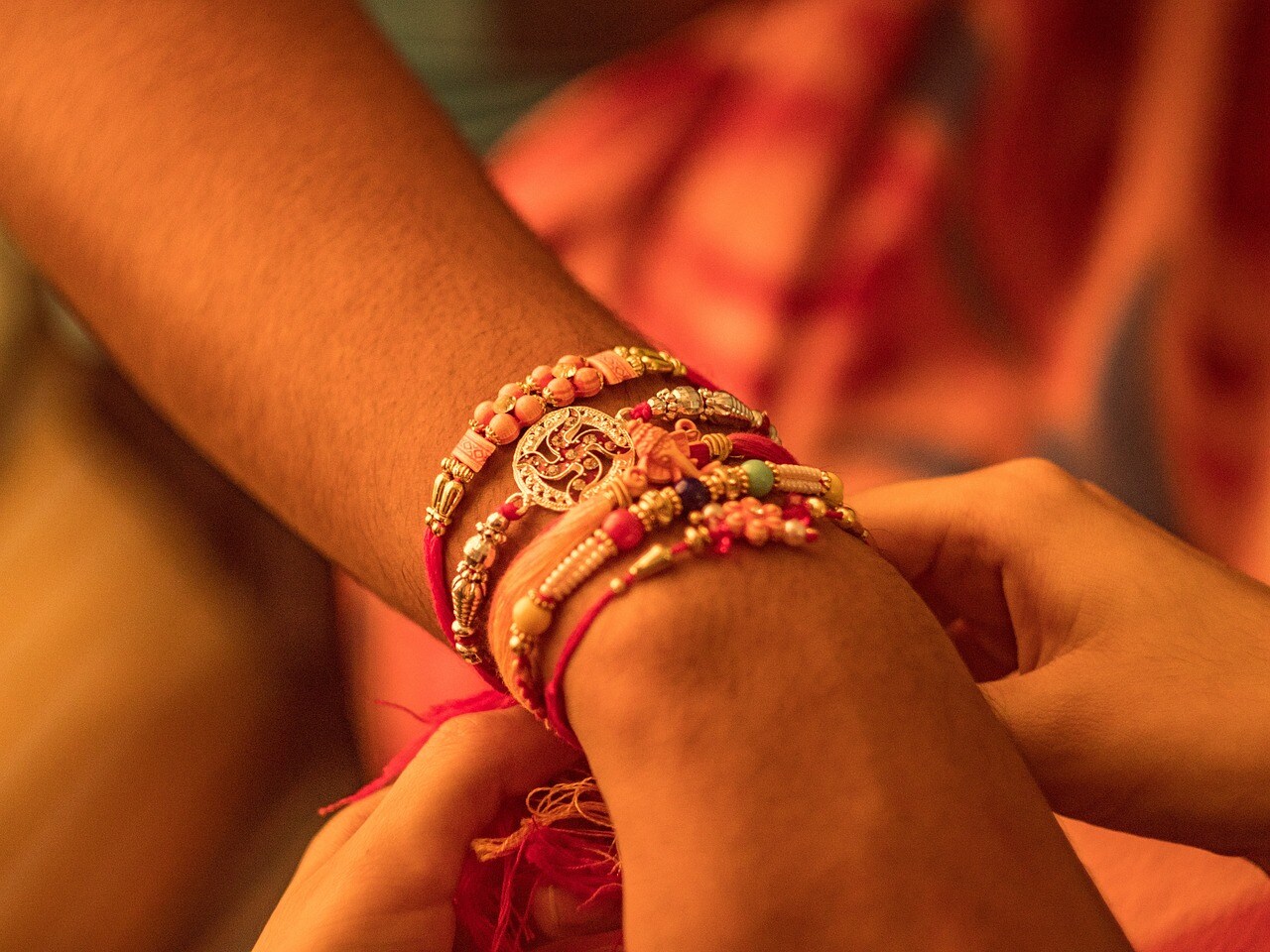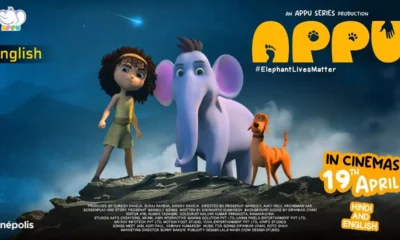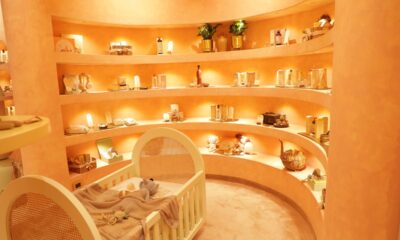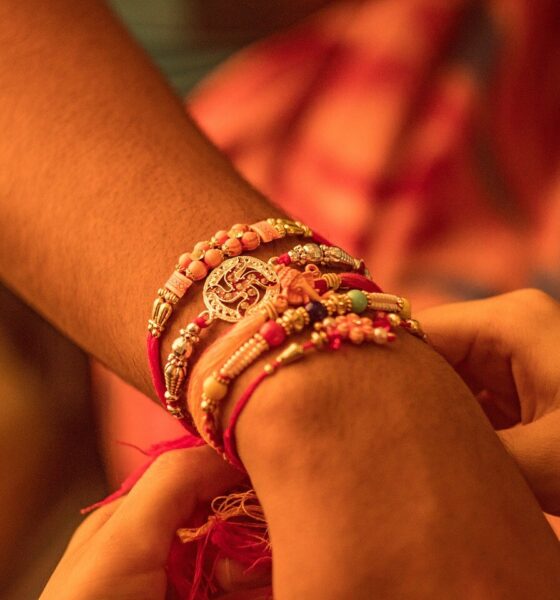Events
100 days of Modi 2.0: Prakash Javadekar lauds decision on Article 370

Union Minister Prakash Javadekar on Sunday addressed a press conference on the completion of 100 days of the second term of Prime Minister Narendra Modi-led government at the Centre and said that the 100 days were “full of unprecedented decisions and moves”. He stressed that biggest decision taken in the last 100 days was the abrogation of Article 370,35A and the formation of Union Territory of Jammu & Kashmir and Ladakh.
Javadekar added that 35 days have passed since the Centre decided to revoke Article 370, 35A, which granted special status to the erstwhile state of Jammu and Kashmir, and only a few minor incidents have taken place in the region. He added that the situation is fast returning to normal in the region and people have supported the Centre’s move. According to Javadekar, one of the important aspects of the decision to revoke Article 370 is that Pakistan tried its best to raise the issue at the international stage, including at the United Nations, but the entire world supported the decision taken by Modi government.

Javadekar also addressed the issue of economic slowdown and said that it is nothing more than a psychological slowdown and it is not going to have any major effect on the Indian economy.
The Union Information and Broadcasting Minister also said that the Modi government has taken several measures in the last 100 days to achieve the goal of 5 trillion economies. He added that the government has made many changes in Income Tax and GST.
Javadekar hailed the Modi government for making the practice of Triple Talaq a criminal offense in order to protect the rights of Muslim women. He said that Pradhan Mantri Awaas Yojna is quite successful and the government’s plan of providing electricity to each household in the villages of the country will be achieved in the next six months.
Talking about the Ayushmaan Bharat program, Javadekar said that around 41 lakh people have undergone treatment under this program but the program was not launched by some state governments including Delhi.
Javadekar said that the Modi government’s decision to provide Rs 6,000 annually to farmers is the biggest such program launched by any government in the world. He added that the Modi government is committed to double the income of farmers and is taking several steps to achieve this objective.
The senior BJP leader told the media each household in the country will receive tap water in the next five years under the ‘Jal Shakti Abhiyaan’ launched by the Modi government. Javadekar stressed that the government has launched a direct attack on corruption by increasing transparency and has removed 58 useless laws in the last 100 days. He added that over 150 corrupt government officials have been forced to retire in order to reduce corruption in government offices.
Talking about the Chandrayaan-2 mission, Javadekar said that the mission is successful and the whole world is lauding Indian scientists. He added that PM Modi’s hug to ISRO chief Dr. K Sivan shows the human face of the BJP and underlines the fact that the Modi government is committed to back the Bengaluru-based organization in all its future endeavors.
Events
📰 Letters to My Brother: Why Rakhi Is More Than Just a Thread

As the fragrance of fresh marigolds lingers in the air and sweet boxes line store shelves, a As the fragrance of fresh marigolds lingers in the air and sweet boxes line store shelves, a familiar warmth returns with Rakshabandhan—a festival that may appear simple on the surface, but carries centuries of emotion, memory, and sibling love in its essence.
In this feature, we explore the spirit of Rakhi not through rituals or shopping guides, but through a personal lens—a heartfelt letter that echoes the feelings of countless sisters across India and beyond.
✉️ A Letter to My Brother
Dear Brother,
Rakhi is almost here. And as I carefully pick a Rakhi thread from a dozen designs, I realize this isn’t just a thread—it’s our story, tied year after year.
This thread holds more than a promise of protection. It holds your laughter when I cried over silly things. It holds your silent encouragement during my exams, your confidence in me when I doubted myself. It holds the little fights, the midnight snacks we shared, the childhood games we never really grew out of.
When we were younger, Rakhi meant sweets, gifts, and photos. But growing up has taught me that it’s much more—it’s an anchor that reminds me we’re never alone, even in the chaos of adulthood.
I still remember the first Rakhi I made by hand, and how you wore it proudly, even when the glitter kept falling off. Today, life is faster, distances longer, and time shorter—but every Rakhi brings us back home, even if just in spirit.
This Rakshabandhan, I want to say thank you—not just for the big gestures, but for the little things: for being my first friend, my rival, my protector, and sometimes, even my secret keeper.
More than tradition, Rakhi is a celebration of the unspoken love, the shared memories, and the quiet strength that siblings give each other without ever needing to ask.
So when I tie that thread this year, know that I’m tying our entire journey, one loop at a time.
With all my love,
Your Sister
🎀 Beyond the Thread: What Rakhi Represents Today
In modern times, Rakshabandhan has evolved beyond gender roles and rituals. It is now a celebration of siblinghood in its truest form—built on equality, understanding, and mutual support. Sisters are protectors, too, and brothers are emotionally open. The festival is no longer about who protects whom, but how we stand by each other.
As families become global, Rakhi has become a beautiful way to reconnect, even across borders—whether through a digital letter, a video call, or a couriered thread carrying love across oceans.
🧵 Conclusion: A Bond That Time Cannot Unravel
Rakhi is, and always will be, more than just a thread. It’s tradition, yes—but it’s also transformation. It’s a memory, but also a promise for the future. It’s childhood, and it’s growth.
In every letter, every thread, and every smile exchanged on Rakshabandhan, lives the most timeless bond of all—a sibling’s love.
Events
PNB Housing Finance Expands Healthcare Access for Underprivileged Communities in association with Wockhardt Foundation

- Inaugurates Mobile Medical Units across 4 metropolitan construction sites and slums to benefit over 1 lakh urban workers
19th May 2025: PNB Housing Finance, one of India’s leading housing finance companies, through its CSR arm Pehel Foundation, announced the launch of the second phase of its Mobile Medical Unit (MMU) Program in partnership with Wockhardt Foundation. The program is aimed at improving primary healthcare access for construction workers and underprivileged communities across key regions of Delhi, Mumbai, Chennai and Ahmedabad, providing doorstep medical services to them.

The program is designed to address the lack of accessible and affordable healthcare services near construction sites and slum areas. Construction workers and their families often forego basic medical treatment due to high commute costs, long queues at hospitals, or fear of wage loss from time away. PNB Housing Finance and Wockhardt Foundation have joined hands to bridge this gap and offer a sustainable solution by bringing primary and preventive care directly to them.
Speaking on the launch, Mr. Girish Kousgi, MD & CEO of PNB Housing Finance said, “Healthcare is a basic right, yet access remains a privilege for many. At PNB Housing Finance, we believe that development must be inclusive, and that means addressing real needs where they exist – on the ground, at construction sites, in underserved neighborhoods. Our Mobile Medical Unit Program in association with Wockhardt Foundation aims to reduce the financial and physical barriers that prevent thousands of underserved families from seeking primary medical care. This is not just about treatment – it’s about creating awareness and promoting long-term well-being amongst the masses.”
Mr. Denis Varghese, Director- Wockhardt Foundation, added, “This collaboration with PNB Housing Finance gives us an opportunity to bring healthcare to those who need it the most – right inside the communities. With over 93,000 lives touched in Phase 1, this next chapter will further expand our reach to over one lakh individuals—a meaningful step toward bridging the healthcare gap. By bringing healthcare to the underserved, we will continue to empower communities to take charge of their health.”
Each mobile unit is staffed with 3 members – an MBBS doctor, pharmacist and licensed driver. The medical vans will offer essential services including general check-ups, treatment for common ailments, diabetes and hypertension management, and referrals for advanced treatment. In addition, the MMUs will continue to conduct health education and hygiene awareness sessions, and promote access to government healthcare schemes, further empowering these communities with knowledge and preventive practices.
The initiative builds on the success of Phase 1, where four MMUs served thousands of beneficiaries, majority of whom were from the construction worker community. With this second phase, PNB Housing Finance reaffirms its commitment to inclusive community development and sustainable urban progress – where nobody is left behind in the journey towards better health and well-being.
About PNB Housing Finance Limited
PNB Housing Finance Limited (NSE: PNBHOUSING, BSE: 540173) is promoted by Punjab National Bank and is a registered Housing Finance Company with National Housing Bank (NHB). The Company was listed on the Indian stock exchanges on 07 November 2016. The Company’s asset base comprises retail loans and corporate loans. The retail business focuses on organized mass housing segment financing for the acquisition or construction of houses. In addition, it also provides loans against properties and loans for the purchase & construction of non-residential premises. Corporate loans are mainly to developers for the construction of residential/commercial properties, corporate term loans and lease rental discounting. PNB Housing Finance is a deposit-taking Housing Finance Company.
Events
Sustainable Wellness – Embracing Eco-Friendly Health Practices

Incorporating sustainability into wellness initiatives provides long-term benefits for employees and the planet. Whether it’s switching to refillable beauty products or using energy-efficient lighting in fitness facilities, these changes can make a significant difference. Additionally, embracing more natural forms of exercise such as hiking or biking can reduce the use of resources while promoting a healthy mind and body.
Educating about sustainability also helps employees understand the interconnectedness of different aspects of well-being. For example, thriving involves the individual’s relationship with nature and can be measured by an ecological footprint. A more holistic approach to well-being also considers the relationships between a company and its employees, which can be measured by a social return on investment (SROI).
By incorporating sustainability into wellness programs, businesses can promote healthier lifestyles in an environmentally friendly way. These programs can help employees make better choices about the food they eat and the fitness equipment they buy, as well as how they use water and electricity at home. This approach is especially important as global temperatures rise, and people need to be more conscious of the impact their daily actions have on the environment.
Increasingly, people are looking for ways to combine wellness and sustainability by choosing eco-friendly products and services. For example, more people are seeking outdoor activities such as yoga and mindfulness meditation that allow them to connect with nature and relax. They may also opt for organic and all-natural skincare and makeup products, as these are kinder to the environment than their synthetic counterparts.
Companies that embrace wellness and sustainability can improve employee retention and attract candidates who value corporate responsibility. They can also develop more cost-effective strategies that deliver a stronger ROI by leveraging digital tools to reduce the need for physical resources.
In addition, incorporating environmental considerations into wellness programs can help companies meet regulatory compliance requirements and create a more positive workplace culture. It’s essential for leadership to endorse wellness and sustainability initiatives, as this sets the tone for employees. This may include providing financial incentives for using public transportation or encouraging carpooling to reduce the carbon footprint from commuting to work.
By focusing on both wellness and sustainability, businesses can offer a more comprehensive employee benefit package. This can help them attract and retain top talent while reducing healthcare costs and boosting productivity. In the future, more and more companies will begin to realize that wellness and sustainability are two sides of the same coin.
To ensure success, it’s vital to involve stakeholders in the development of wellness and sustainability programs. Involving employees in the planning process allows them to share their concerns and ideas, which can shape the programs’ outcomes. Involving stakeholders also ensures that the goals and objectives of these programs are aligned with the company’s overall environmental sustainability targets. Finally, it’s crucial to track and measure the results of these programs to show the positive impact they have on the environment.
-

 Celebrities1 year ago
Celebrities1 year agoVOGUE EYEWEAR UNVEILS ‘KEEP PLAYING’, AN EFFERVESCENT CAMPAIGN WITH BRAND AMBASSADOR
-

 Events6 years ago
Events6 years agoVandy Mehra & Dr. Sanjana Jon hosted a fashionable evening
-

 Business8 years ago
Business8 years agoUber and Lyft are finally available in all of New York State
-

 Health & Beauty12 months ago
Health & Beauty12 months agoThe Face Shop Unveils the Vitamin Lip Sleeping Mask: A Revolution in Lip Care
-

 Health & Beauty1 year ago
Health & Beauty1 year agoSmooth skin forever? Laser Hair Removal truth
-

 Celebrities1 year ago
Celebrities1 year agoAppu gives meaningful message in country’s first 4K animated
-

 Events12 months ago
Events12 months agoRadhika Ambani donned four bespoke gowns for her $600M wedding
-

 Health & Beauty12 months ago
Health & Beauty12 months agoBaby Forest Ayurveda opens new brick and mortar store in Noida














